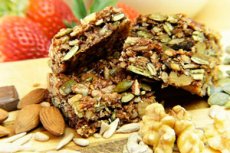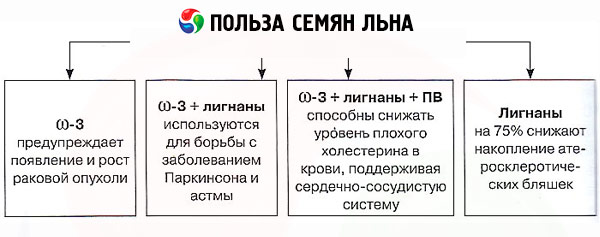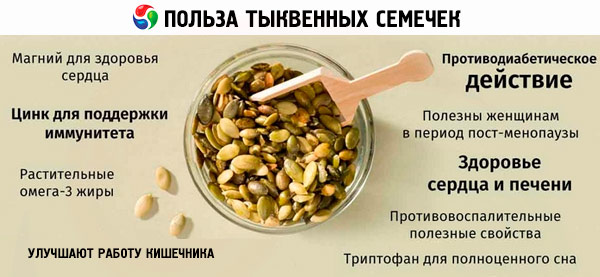Medical expert of the article
New publications
Is it okay for a nursing mom to eat seeds?
Last reviewed: 03.07.2025

All iLive content is medically reviewed or fact checked to ensure as much factual accuracy as possible.
We have strict sourcing guidelines and only link to reputable media sites, academic research institutions and, whenever possible, medically peer reviewed studies. Note that the numbers in parentheses ([1], [2], etc.) are clickable links to these studies.
If you feel that any of our content is inaccurate, out-of-date, or otherwise questionable, please select it and press Ctrl + Enter.

Seeds can be very useful during breastfeeding, but in certain cases they can also be harmful. In order to get the most out of your baby while breastfeeding, it is important to know the conditions under which you can eat seeds. It is also important to know which ones are useful and which ones are not so useful and can cause various disorders in your baby.
 [ 1 ]
[ 1 ]
Benefits of seeds during lactation
For many people, sunflower seeds are an exciting snack, and for some, they are also a kind of antidepressant. But it is important to understand whether a nursing mother can gnaw on sunflower seeds, and which seeds to choose?
The numerous health benefits of sunflower seeds have made them a popular addition to a snack or even a diet. They are certainly healthy. Sunflower seeds are a storehouse of vitamins and minerals. They contain vitamin D, vitamin A. Sunflower seeds contain more vitamin D than a mass of cod. Thanks to this content of vitamin D, the child will receive it for the necessary growth and mental development directly from milk. The mother herself, thanks to vitamin D, will not have problems with nails and hair. Vitamin A contained in seeds will help women not only look beautiful, but also improve their health, as it is an excellent antidepressant and will have a calming effect on the child. Sunflower seeds are rich in vitamin E. Vitamin E can help improve the condition of cells and the protective activity of the epithelium in a child. Sunflower seeds are also rich in zinc. Zinc can help improve both the number of active immune defense cells and the mobility of leukocytes. In addition, zinc is very important for normal bowel function, as it normalizes the balance of body fluids and improves bowel condition. Sunflower seeds are rich in antioxidants, which help protect the baby and mother from the effects of free radicals.
Sunflower seeds are also rich in fatty acids, which are beneficial for the brain development of the growing fetus. They also contain a lot of fiber, which can help prevent constipation during breastfeeding. Constipation can occur during lactation because new mothers cannot move around freely, and this will slow down bowel movements.
Sunflower seeds are a rich source of folate and various minerals such as iron, calcium, zinc, selenium, and copper. The folate in sunflower seeds helps in the formation of red blood cells, which are the main source of oxygen for the cells of a growing baby. Lack of folate causes various problems such as developmental disorders in your growing baby. In addition, the folate found in sunflower seeds can help prevent birth defects in newborns. Since the daily requirement of any mother for various substances increases while breastfeeding, the need for folate increases. Therefore, such a source of this acid will be a great addition to your diet.
Thus, sunflower seeds can be eaten while breastfeeding, but in moderation. However, it is recommended to carefully select sunflower seeds, as many products available in the market contain many preservatives.
Fried seeds do not contain vitamins during breastfeeding, so you should give preference to drying them in the oven and eating them without salt.
Kozinaki made from sunflower seeds can be used as an alternative to fried sunflower seeds during breastfeeding, but you need to know exactly what is in the kozinaki. After all, excess glucose or dyes can cause problems with the child's stool or allergic reactions.
Sesame seeds are also quite beneficial when breastfeeding. In ancient times, it was believed that sesame seeds can cause miscarriage during pregnancy, mainly because they are “hot” in nature and generate heat in the abdomen. However, there are no scientific studies to prove that sesame seeds can be harmful, and when taken in moderation, they can actually be a wonderful and healthy food when breastfeeding. Make sure that you are not allergic to sesame seeds and can easily consume without harm to yourself and the baby.
Sesame seeds are rich in calcium, amino acids, proteins, vitamins B, C, E and even iron, all of which are extremely important minerals.
Constipation is a common problem seen in nursing mothers. Sesame seeds are one of the best natural foods that can help solve the problem. Adding sesame seeds to your foods can help soften the stool and even affect the baby's stool. Sesame seeds are loaded with nutrients that boost health and immunity. Consuming sesame seeds during the winter can boost your immune defense and protect you from colds and flu.
Most women tend to be calcium deficient and sesame seeds are indeed a natural source of this vital mineral. Sesame seeds are one of the best natural strength boosters. They strengthen muscles and nerves and make the body energetic. Consuming sesame seeds is believed to reduce mental weakness and stress and slow down aging.
Another useful seed during lactation is flax seeds.
Flax seeds contain some of the vital nutrients that you need during lactation. Flax seeds are rich in omega-3 fatty acids and fiber, which are essential for your body and baby. Apart from being an excellent source of two essential fatty acids for human health – linoleic acid and alpha-linolenic acid, flax seeds are also a good source of fiber, minerals, and vitamins. The laxative properties of flax seeds help keep your baby from becoming constipated.

Pumpkin seeds during breastfeeding are incredibly beneficial for a nursing mother’s diet, especially for increasing milk supply. Pumpkin seeds are packed with nutrients. These seeds also contain various minerals and vitamins. Recent studies point out the importance of having adequate levels of zinc in your breast milk for healthy lactation. Why do babies need zinc? Zinc supports a healthy immune system and protects against colds and infections. Zinc is great for baby’s skin and it also helps in brain development. Zinc also allows the baby’s body to absorb other vital nutrients. Zinc is not stored in the body, so it is important for a mother to consume it regularly to maintain zinc levels. Roasted pumpkin seeds are a quick and delicious way to make sure you are getting enough zinc for your baby.

 [ 2 ]
[ 2 ]
Potential harm of seeds when feeding a child
Consuming large amounts of sunflower seeds can lead to phosphorus toxicity, which can cause kidney damage. The mother or child may suffer from selenium toxicity, which leads to symptoms such as selenosis. Irritability and body fatigue are common symptoms in this case.
Too many sunflower seeds can also cause dry, cracked skin.
The seeds are known to act as estrogen and stimulate contractions and menstruation, which can affect your condition after childbirth. You may see a sharp increase in blood pressure levels with the consumption of unripe or raw flaxseeds. So make sure that the flax seeds are not unripe or raw. Flaxseeds contain a toxic chemical called cyanide, which can lead to poisoning.
Excessive consumption of pumpkin seeds can lead to strange side effects. These seeds contain iron, protein, fiber, and fatty acids. Fiber and fatty acids are bad for the health of the baby. It can also affect intestinal colic in babies. Pumpkin seeds can be allergenic, especially for a baby.
Thus, despite the benefits of different types of seeds, the most important thing during breastfeeding is to consume them no more than the norm. This allows you to minimize allergic reactions and get the most benefit.
Every mother, faced with the problem of diet during breastfeeding, must give up some of her preferences. But you can eat seeds during breastfeeding, it can even be very useful. They contain vitamins and acids that may be necessary for the child during infancy. This proves the need for a differentiated approach to choosing a diet during lactation.

